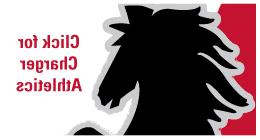Working in health care is one of the most rewarding and secure career choices you can make. But if you want to increase your earning potential and create a more significant impact in the lives of your patients, an advanced degree is a necessity. Participating in an FNP program is an excellent choice because it gives you access to higher-paying jobs that give you more influence on the healthcare system without restricting your employment to a particular niche. As a Family Nurse Practitioner, you can diagnose and treat people of any age and background.
Most graduate students who become part of the Dominican University family are already working, so we designed our FNP program as a part-time option that you can complete while maintaining your employment. All our courses are run in the evenings, and you can earn your FNP degree in two years. Typically, you will have classes on two evenings per week.
With classes on subjects like advanced pathophysiology and power, and policy and politics, our FNP program will prepare you to improve patient safety and enhance health care delivery. Our curriculum is based on the New AACN Essentials (2021) and was crafted to give you the knowledge and skill-set necessary to become a transformative leader in the healthcare industry. Our FNP degree is also CCNE-accredited, and upon completion, you’ll be qualified to sit for ANCC or AANP certification.
All our faculty are currently working as advanced practice nurses, so you’ll be learning from people who really understand what you need to know to succeed in your career. And we have faculty working in emergency medicine, pediatrics, internal medicine, and school health, so you’ll get the broad educational insights you need to succeed.
The Dominican University difference:
- Keep Working: Our weekday evening classes are designed to allow you to pursue your MS degree while working full-time.
- Flexible Workload: Take classes twice a week every semester, and graduate in 24 months.
- Flexible Tuition: Competitive rates, with an option to defer payment until the end of the term.
- Flexible Learning: Some courses are offered as hybrids of classroom and online studies.
- Top Faculty and Clinical Placements: Learn from expert practicing advanced nurses. Clinical placements are available at many top locations, representing different specialties.
With an FNP degree, you’ll be eligible for jobs enabling you to truly transform our healthcare system for the better. And at Dominican University New York, you’ll have a great college experience while you earn your Master of Science, Family Nurse Practitioner.
A robust, hands-on FNP degree to prepare you for an incredibly rewarding career as a Family Nurse Practitioner
The highest levels of personal support
Staff who are committed to your success
Close proximity to New York City and three major airports
Request Information
A FNP Program degree that will equip you with marketable skills for almost any career
The highest levels of personal support
Staff who are committed to your success
The finest small-university athletic program in the region
A spirited campus environment
Close proximity to New York City and three major airports
The Dominican Difference
What I love most about Dominican University is that all the faculty make it their duty to see you succeed. After receiving a BSN from the College in 2018, I decided to go back to Dominican University and enroll in the FNP program in 2020. This program has shaped me into a strong, confident person with a knowledge base that I know will aid me greatly in my career. The program is shaped in an accommodating and convenient manor that allows students to work full time as nurses and still attend class and clinical. The instructors, especially AnneMarie McDermott, have pushed me to become the best version of myself and helped me to realize my full potential.
Michelle Monaco, ‘18
15k+
Alumni
$26,055
Financial Aid
17
Miles from NYC
100% of First Time
Full-Time Freshman Receive Financial Aid
Job Opportunities
Obviously, an FNP degree will equip you to become a Family Nurse Practitioner. But that’s not the only job title you’ll be eligible for.
Upon completion of our FNP program you can also pursue such jobs as:
- Advanced Nurse Practitioner
- Nursing consultant
- Nurse administrator
- Research nurse
- Nurse educator
- Clinical nurse specialist
What You’ll Learn
Our FNP degree focuses on these key learning outcomes:
- Integrate principles of systems theory, natural, biological, physical, and social sciences in advanced nursing practice
- Analyze patient responses to therapeutic interventions
- Synthesize the nursing process in a manner inclusive of biopsychosocial phenomena and cultural and ethnic variations
- Synthesize primary, secondary, and tertiary levels of prevention to promote optimal wellness
- Integrate nursing research methods to improve advanced practice nursing
- Demonstrate dependent, independent, and interdependent professional behaviors in advanced practice nursing
In short, by completing our FNP program, you’ll learn everything you need to:
- Provide advanced patient care: Family Nurse Practitioners have more autonomy, giving you the ability to provide comprehensive care directly to your patients. As an FNP you’ll have the opportunity to deliver compassionate, holistic care to the full extent of your education and clinical expertise.
- Expand your role as a nurse: Nurse practitioners can diagnose illnesses, prescribe medications and provide acute and primary care in a variety of clinical practice settings.
- Open up a raft of rewarding career opportunities: Get access to management and educator positions, where a Master of Science is generally a requirement.
Degree Details
Department Staff


AnneMarie McDermott
Office: (845) 848-6059

Barbara Polowczyk

Patty Furlong
Office: (845) 848-6013
Location: Prusmack Center


